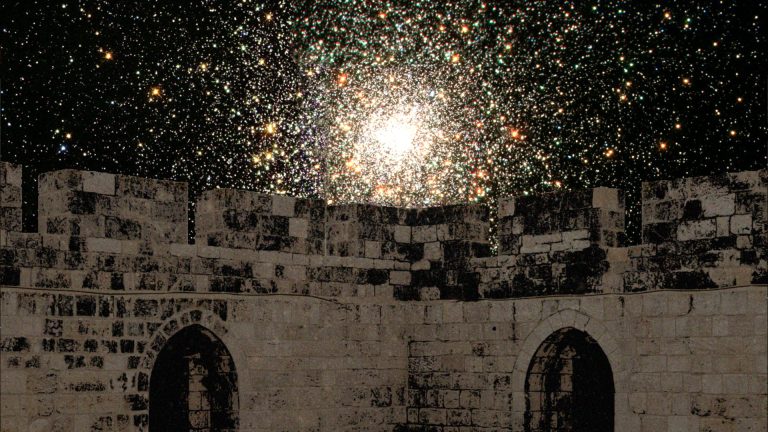Unveiling Melchizedek: His Significance for Understanding Jesus

Melchizedek, the king – priest of Salem, is one of the Old Testament’s least – mentioned and most mysterious figures. However, he plays a crucial role in helping us understand how Jesus holds the dual positions of king and priest. This dual honor had very few, if any, precedents among Israelite kings.
So, who exactly is this enigmatic character? And how does the dynastic order associated with him enhance our comprehension of Christ’s kingly and priestly roles?
The King Who Prepares the Table
Melchizedek holds a significance in redemptive history that far exceeds the limited space dedicated to him in the Bible. His name literally means “king of righteousness,” and he rules over the city of Salem, which is related to “shalom,” representing cosmic, harmonious peace.
Melchizedek, as the King – Priest of Salem, is fundamental for grasping how Jesus assumes the dual offices of king and priest.
In the three verses that detail his life and ministry (Gen. 14:18–20), we are introduced to Melchizedek’s authority as both the king of Salem and “priest of the God Most High.” He speaks of God as both the Creator and the Deliverer. After Abram’s victory in battle against his enemies, Melchizedek offers “bread and wine” to Abram. In return, Abram gives a tenth of everything to Melchizedek, highlighting the latter’s spiritual importance. It’s important to note the gospel – like allusion to the sacrament of communion here.
Anticipating a Superior King
Psalm 110, the most frequently quoted psalm in the New Testament, demands careful study to fully appreciate how Christ fulfills the roles of king and priest. King David wrote this psalm, perhaps for a future king like Solomon before his ascension to the throne in 971 BC, or for a future messianic figure from his lineage.
The psalm starts by proclaiming that this future king will receive greater honor, power, and authority than any human king before. He will sit at Yahweh’s right hand, a position of the highest honor as Yahweh’s vice – regent and representative (110:1). In this role, he gets his authority from Yahweh and exercises Yahweh’s royal rule. This leads to the subjugation of the king’s enemies (110:2) and the protection of the king’s realm and his people (110:3).
But this messianic figure is not just a king; he is also a priest in the order of Melchizedek (110:4). In a way, Davidic kings already had some “priestly” functions, such as leading worship, guiding corporate prayer, and offering sacrifices on special occasions outside the Levitical tradition.
However, this verse further develops the priestly functions of the Davidic dynasty, creating a strong connection to the dynastic line of Jebusite king – priests who once ruled from Jerusalem. As a result, the Davidic dynasty can claim divine support for their rule over the Promised Land, fulfilling the blessing Abram received from Melchizedek in Genesis 14:18–20.
Verses 5–6 mirror verses 2–3 in terms of Yahweh’s relationship with the Davidic king. Significantly, while the king sits at Yahweh’s right hand in verse 1, Yahweh stands by the king in verse 5, showing divine protection and support. In verses 2–3, the king is the main figure in battle, but in verses 5–7, Yahweh is depicted as the main protagonist, the Divine Warrior. He helps the king defeat his enemies on individual, corporate, and cosmic levels (referred to as “among the nations,” “over the wide earth,” etc.).
This greatly expands the original Israelite domain, suggesting that these enemy kings represent the cosmic forces of chaos that Yahweh, through his ultimate Melchizedekian Priest – King, defeats on behalf of Israel and all other nations. In other words, the reach of Yahweh’s salvation extends beyond individual souls to physical bodies, social systems, and cosmic powers.
Finally, the psalm concludes with Yahweh refreshing himself from a brook (110:7). At first glance, this verse may seem strange, but it portrays Yahweh as someone who understands and sympathizes with the human condition.
The Eternal Melchizedekian King – Priest
In the New Testament, the writer of Hebrews elevates Melchizedek to a pre – incarnate Christ – like figure. Melchizedek is described as eternal, having no “father or mother,” and “resembling the Son of God he continues a priest forever” (Heb. 7:3). Abraham’s tithe to Melchizedek also affirms his greatness (Heb. 7:4).
Following in Melchizedek’s footsteps, Jesus is the true king of righteousness (echoing “Melchizedek”). He lived a perfect life that no human could achieve. Jesus is also the true king of peace (like Salem). He came to earth and brought peace through his sacrificial death and resurrection. Additionally, Jesus is “a priest forever, after the order of Melchizedek” (Heb. 7:17), and his priesthood is not based on Levitical lineage (Heb. 7:14), making it superior (Heb. 7:11).
Consequently, “This makes Jesus the guarantor of a better covenant” (Heb. 7:22). Because “he holds his priesthood permanently, because he continues forever” (Heb. 7:24), “he is able to save to the uttermost those who draw near to God through him, since he always lives to make intercession for them” (Heb. 7:25).
Believers can find comfort in knowing that Jesus is the perfect King, ruling with limitless power and justice. They can also be reassured that Jesus is the perfect Priest, ministering with boundless mercy and empathizing with our weaknesses (Heb. 4:15).
Due to our union with Christ, believers are reminded of our Melchizedekian calling. We are called to expand his kingdom through truth and justice as members of God’s royal family. We are also called to be a source of mercy and healing for the covenant community and for the rest of the world.





